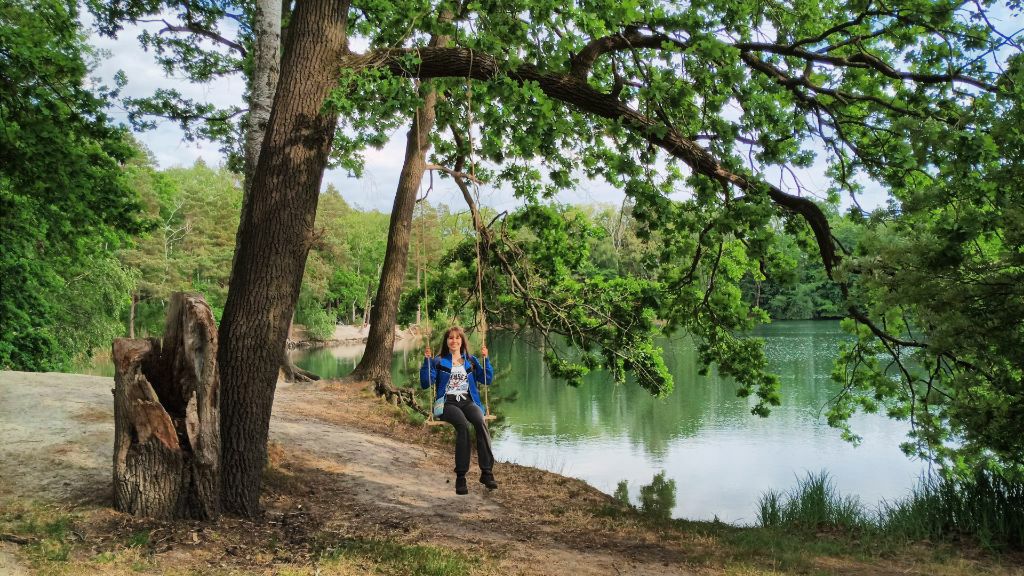Reading time: 8 minutes

LEARNING HACKS Holidays! An exhausting school year lies behind us. But while the best time of the year begins for some, others don’t know what to do with themselves during the 6 weeks. Find out here how you can fill your free time with your own holiday project.
6 weeks without school are the dream of many students. But when the euphoria of the first few days has died down, many are faced with a great deal of boredom. What can you do during the holidays? For those who don’t go on vacation (which is difficult anyway because of corona), the actually most beautiful time of the year can turn into a real nightmare.
But those who haven’t found a holiday job and don’t want to prepare anything for the coming school year don’t necessarily have to lie on the sofa and watch Netflix 24/7. Finding relaxing and efficient activities at the same time is not as difficult as it first seems. Here are a few tips on how to make your holidays an unforgettable time.
Vacation, holiday jobs and more
Recovery should of course be the top priority. But it does not always have to be vacation abroad. Even in the immediate vicinity you can find great day trip destinations. Maybe there is a bathing lake or an open-air swimming pool nearby that wants to become your second home on hot days. Or would you prefer a camping trip with friends? Then pack up your tent and a few friends and off you go to the nearby forest, beach, mountains, etc. If all this is too stressful for you, you might like to have your own sun bed in your own garden or nearby park… Everything is possible, the main thing is to get out of your room!

The absolute classic among the holidays of older pupils is of course the holiday job. Here you can supplement your pocket money or gain some work experience. An internship is also possible in this sense. However, holiday jobs themselves can only be done from the age of 15 and initially only with the consent of the parents. But who knows, maybe your dream job is already there …
More fun ideas on what to do (e.g. if your summer holiday has been cancelled) can be found here.
Preparation for the next school year
It’s the holidays and you’re still supposed to be in school?! Of course not – at least not exclusively. But in fact, the summer holidays are a good time to work on knowledge that somehow got lost during the last school year. To do so, simply redo old exercises or – and this is my best tip – create overviews on certain topics.
This not only consolidates old material, but also prepares you for the next school year, which is why I recommend this method especially to prospective high school graduates (you can never start early enough with learning overviews …).
Note: This does not mean that you should be busy with learning the whole holiday! Rather, it is a good way to avoid boredom maybe (with music in the background) if you really don’t know what to do with yourself. And you also learn on the side!
Holiday project at home

You have included the previous points in your planning and still have time? Here your own holiday activity plan can help. It is neither a concrete daily routine nor a list to work through, but rather a collection of ideas to pass the time. Is there something you always wanted to do but never got around to? Now is the ideal time to dig into your imagination. Write a short story, design a photo book of last year, learn a new language: there are no limits! And so that your project doesn’t get stifled right at the start due to a lack of motivation, here are my tips for better holiday motivation.
1. Motivated start to the day
Hardly anything is as important for motivation as a good start to the day. We all know this situation: holidays, sleeping in, not getting out of bed – an obviously bad way to get up for anything. Instead: Develop your own morning routine. It’s more productive than loitering around in bed for 10 minutes and thinking about whether to exercise or have breakfast first. Because once you’ve got some energy in your day, you can use it for your project.
2. Create your own daily schedule
A certain daily schedule can also be very helpful. It’s like fixed hours. Times when you have no excuses to work on something other than your project right now. Fixed breaks are of course also a must. If this is too stressful for you, you can ask your parents how they managed their home office times during the Corona lockdown. I’m sure they didn’t just sit down in front of the computer at some point when they felt like it and take arbitrary breaks. After all, work without a fixed structure is more strenuous than work with structure. As exciting as it can be to be distracted by meaningless voice messages on WhatsApp, it can become annoying over time.
That you have a rough overview of what I would like to tell you here at all, I have put together an example of a half-day plan that I would follow:
- 8:00 a.m.: Waking up and reading
- 8:15 a.m.: Getting up and having breakfast
- 8:25 a.m.: Watching a motivation video on YouTube
- 8:30 a.m.: working block 1
- 10:00 a.m.: 10 min break
- 10:10 a.m.: working block 2
- 11:40 a.m.: preparing lunch/lunch break
- 1:00 p.m.: working block 3
- 2:30 p.m.: individual afternoon and holiday arrangements

Note for late risers:
The born late risers who can’t identify with this plan don’t have to get up at 8:00 a.m. every morning now. Everyone should find their own working rhythm and then develop their own daily routine. Some people are more productive in the evening, for example. That’s totally fine. Then just work in the evening. As I said before, the only important things are the work structure and – not to forget – a healthy sleep rhythm.
3. The method of self-extortion
Attention: This method only works with a fixed goal in mind and the specially set principle of keeping one’s promises to oneself.

All those who were not deterred by the previous Attention! can try self-extortion. A method that I have found to be an absolute help to self-discipline – and to keep my daily schedule. The principle is nothing more than: If I can’t tear myself away from the series (i.e. the one that distracts you) now, it’ll fall apart for the next two days. But if I finally start with the first chapter, there might be another episode of my favourite series in there before noon.
At first glance, that sounds anything but motivating, I know. And after all, no one is stopping you from breaking the deal you made with yourself. It’s all up to your will to prove to yourself that you can create something greater here, namely your very own book. Poetically expressed, this then boils down to a competition that increases over time: How often can you defeat your inner bastard and how far can you ultimately outgrow yourself? Granted: this kind of motivation needs a certain basic motivation, but the increasing effect at the end will surprise you.
The aim of these notes

If you want to keep your motivation in the long run, you should be able to distinguish between intrinsic and extrinsic motivation. Extrinsic motivation (from outside) should only be the way to the goal and not the goal itself. Of course, recognition, rewards etc. can really help you in your creative process, but in the end the motivation for your project has to come from yourself (intrinsically). Remember what brought you to this project. Interest? Curiosity? Just to create something of your own? What do you want to achieve?
More tips
- Sleep, food, drink etc. provide you with the necessary energy.
- Breaks are essential for productivity and motivation. Set fixed times and try to take the strain off your eyes, for example by doing sports or a short walk.
- Rewards should not be the reason for your work, but it is a tremendous motivation to appreciate even small progress.
- Stand confidently by your project. Take responsibility for what you want to achieve and say it out loud.
- And finally: Have fun!
Tip: Find more motivation during school. Until then, you might be interested in preparing yourself for the new school year.


